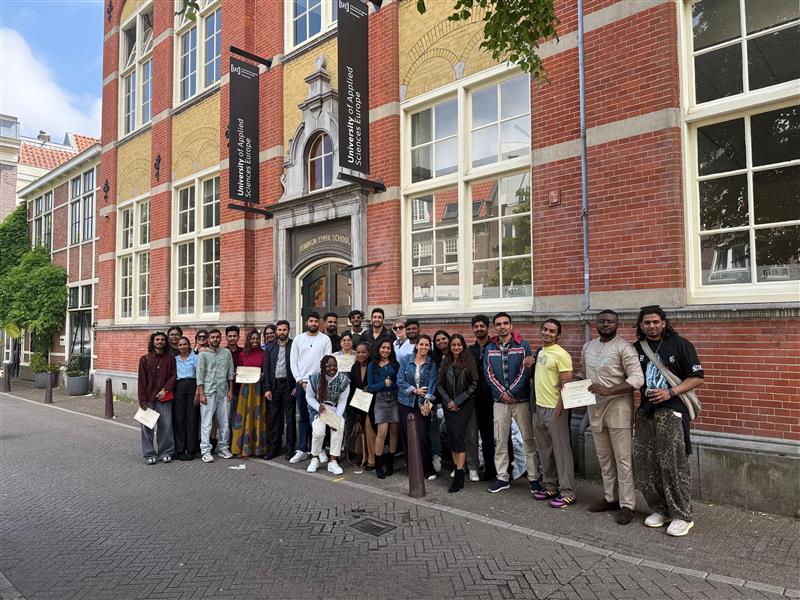
An Informational Guide to Community Psychology
Have you heard of community psychology? This branch of psychology takes a community-based approach to explore how social, cultural and environmental factors shape an individual’s mental health and wellbeing.
Let’s explore the growing importance of community psychology and introduce the core values of this popular career path for psychology graduates. Use this community psychology guide to gain knowledge and insight into this exciting field.
What is Community Psychology?
Community psychology is a pretty straightforward concept, however it’s important to provide a definition. So, what is community psychology?
Community psychology is a branch of psychology that focuses on the relationships between individuals and their communities, exploring their interactions with social and physical environments.
It covers various forms of communities, from schools and workplaces to support groups and families. Each community has its own social and psychological dynamics, which affect how individuals navigate life. The overall aim for community psychologists is to promote community wellness.
History of Community Psychology
Community psychology has a fascinating history that dates back to the 1950s when it began to take shape following World War II.
As American attitudes began to shift towards mental health, there was an increased emphasis on community-based care. Community psychology evolved through the 1960s and 1970s, influenced by wider social movements such as civil rights and feminism, highlighting the importance of environment and social systems in shaping individual wellbeing.
A key milestone was the Swampscott Conference in 1965, which is widely considered the formal beginning of community psychology. This led to the formation of the American Psychological Association’s Division of Community Psychology.
As the field developed, there was more focus on prevention, environmental awareness and community empowerment. Research methods and practices within community psychology continued to advance, reflecting its commitment to inclusivity and long-term impact.
What are the Core Principles and Values in Community Psychology?
Community psychology is built on strong values and principles that aim to inform research and practice. Here are the key pillars of community psychology:
- Ecological levels of analysis: Community psychology acknowledges the importance of considering the individual, their relationships and broader systems in its approach.
- Social justice and human rights: The commitment to fairness and the protection of human rights is central to the application of community psychology.
- Empowerment: The aim to empower individuals to take control of their lives is one of the core values of community psychology.
- Community participation: Community psychologists encourage active participation and involvement from community members to aid interventions.
- Cultural competence and diversity: Community psychologists must ensure they respect and understand cultural differences within communities to adapt their approach.
- Individual wellness: Community psychologists aim to promote mental, emotional and physical health, which is a core value of community psychology.
- Evidence-based practices and research methods: Data-driven and scientific methods underpin the development of effective strategies and interventions within community psychology.
Application of Community Psychology
Community psychology can be applied in various ways to promote overall health and wellbeing and address social issues. Here are a few examples of the application of community psychology:
- Promoting mental health and wellbeing through community programmes: Through workplace and education-based programmes/initiatives to promote emotional support and wellbeing.
- Addressing social issues through community-based initiatives: Community psychology can address diverse social issues, including poverty and homelessness, discrimination, violence and community safety.
- Collaborating with community stakeholders to drive positive change: Community psychologists work with various stakeholders, such as community members, organisations and policymakers, to drive positive change. They identify a community issue, build partnerships and collaborate with stakeholders to engage in community outreach and education.
Benefits and Limitations of Community Psychology
Community psychology has many benefits due to its holistic approach. The scope of community psychology is broad as it addresses the wider social factors that influence health, offering sustainable solutions to complex issues. Community psychology also aims to empower individuals and connect communities. It encourages people to lead positive change in their own lives.
However, implementing change at a community level can be time-consuming and requires navigating complex social systems. Measuring the impact of community psychology can also be challenging, with change being gradual.
Careers with a Degree in Community Psychology
Many community psychology jobs are available to graduates. With greater emphasis on the importance of mental health and wellbeing, graduates can pursue various career paths within community psychology.
Here are some career paths for psychology graduates to explore:
- Non-governmental organisations (NGOs)
- Research and evaluation
- Independent or consulting groups
- Social work
- Education and youth services
- Counselling
- Governmental health and policy development
How to Pursue a Career in Community Psychology with BSBI
Now you understand the scope of community psychology, it’s time to explore a career in this exciting field by earning an undergraduate degree in psychology.
The Berlin School of Business and Innovation (BSBI) offers an accredited BSc in Psychology – Psychosocial Disciplines programme in partnership with the International Telematic University UNINETTUNO.
This three-year bachelor’s degree is delivered 100% at BSBI’s state-of-the-art Berlin campus and offers an extensive overview of the theoretical foundations of general, social and development psychology. Graduates will explore human behaviour in various physiological processes, combining psychology and basic cognitive science to provide a clear understanding of human nature.
So, what are you waiting for? Your career in community psychology awaits! Learn more about BSBI’s BSc in Psychology – Psychosocial Disciplines programme and apply now.
